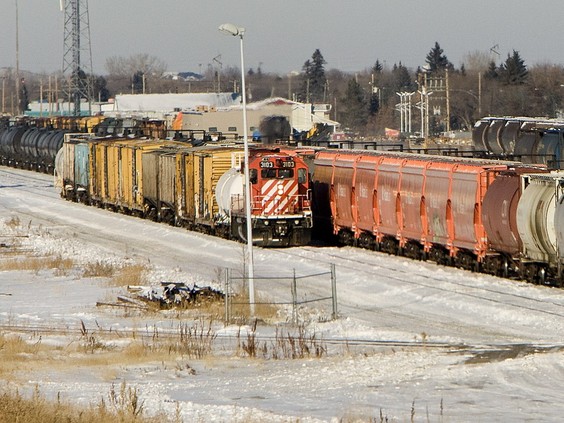As the 2024 harvest season approaches, optimism is overshadowed by the severe risk of a dual strike at Canadian Pacific Kansas City (CPKC) and Canadian National (CN).
The Agricultural Producers Association of Saskatchewan (APAS) on Monday called for immediate action by all parties to preserve the continuity of rail operations. They stated that it is an essential service relied upon by farm families across Canada.
“The simultaneous expiry of operating crews’ contracts at both Canadian Pacific and Canadian National railways presents an unprecedented challenge to our industry,” APAS president Ian Boxall said in a press release.
“Without swift resolution, this standoff threatens not just our province’s agricultural sector heading into harvest season but the economic well-being of our nation. We must act now to ensure our farmers aren’t left bearing the brunt of this looming crisis.”
The situation escalated as union members at both railway companies voted to re-authorize strike action after their initial 60-day mandate expired June 30.
APAS is concerned the looming labour dispute will disrupt rail services during the peak harvest season, endangering both the immediate economic health and the international trade reputation of Canada.
“With the prospect of a large crop on the horizon, the potential rail service disruption could have critical repercussions, from delayed farmer payments to jeopardizing Canada’s reputation as a reliable global supplier,” Boxall said.
“It’s imperative that all parties involved recognize the high stakes and work collectively towards a solution. Our nation’s economic security and the livelihood of our farming communities depend on it.”
APAS emphasized the need for federal departments, including Agriculture and Agri-Food Canada and Transport Canada to collaborate and take decisive steps to prevent a labour disruption for the 2024-25 crop year.
These unified efforts should aim to facilitate an agreement between the railways and their unions, averting service disruptions like the one experienced in the 2013-14 shipping crisis, which resulted in an estimated $6.7 billion loss for western Canadian farmers.
editorial@paherald.sk.ca


